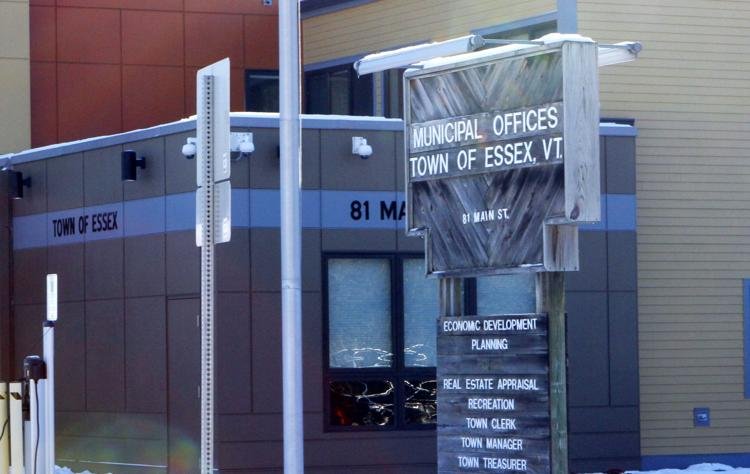Housing Commission sees little need for short-term rental regulation
The Town of Essex municipal offices located at 81 Main Street.
Photograph by Mike Nosek, Staff Writer
ESSEX — Essex housing commissioners were largely uninterested in pushing for regulations on short-term rentals during a recent meeting.
Following up on a Jan. 25 Village board of trustees meeting, the Housing Commission responded to Village President Andrew Brown’s suggestion that Essex should consider researching methods of regulating short-term rentals, like Airbnbs and VRBOs.
Brown was worried that certain rentals may be taking up space that could be used for single-family homes. The commission echoed this concern.
“There’s a distinction on how short-term rentals can put pressure or not put pressure on an already strapped housing market that we have here,” Vice Chair Gabrielle Smith said.
Since Gov. Phil Scott vetoed a state-wide rental regulation bill last year, towns have been left to discuss the issue among themselves.
Commission member Emily Taylor pointed out differences between short-term rental and permanent housing requirements in other towns.
“In Winooski, I think that what I hear even from my own landlord, but also other landlords in the city, is the opinion that people who have short-term rentals don’t have to follow the same type of code or housing requirements or tax requirements as people who have permanent housing apartments,” Taylor said.
Most of the commission thought short-term rentals were not a serious obstacle to Essex residents or the housing market.
Commission Clerk Mia Watson noted a low overall presence of short-term rentals.
“Since 2017, there’s never been more than 30 short-term rentals throughout the entire village and the town… And that’s the top. It’s usually around 20. Even if you look at the top, that would be 0.7% of our housing stock.” Watson said.
According to AirDNA, a short-term rental analytics website, Essex town and village have a combined total of 61 active rentals on Airbnb and VRBO.
Further doubts were expressed about the disruptiveness of short-term rentals.
“And a lot of these are ADUs [accessory dwelling units], which I think is kind of a toss-up as to whether that person would even use it as sort of a full-term rental unit if they weren’t using it on Airbnb,” Watson said.
Essex Community Development Director Owiso Makuku suggested that allowing a small amount of short-term rentals could provide a safety net for some residents.
“The people who are actually going out of their way to rent out a room to rent out a wing or whatever they’re renting may need some property tax relief that they are not getting. They may be facing some sort of cash flow issue that has to do with employment. I think that, temporarily, it’s just, you know, it could be more of a boon to the community if it’s not overwhelming or causing other problems,” Makuku said.
The commission saw no reason to take immediate action on short-term rentals. Their decision to assemble a body of related research and information before the July 26 board of trustees meeting remains unchanged.
“We are not trending towards having significantly rising rates of short-term rentals that we have to be responsive to,” Smith said.
Original story can be found at the Essex Reporter.







